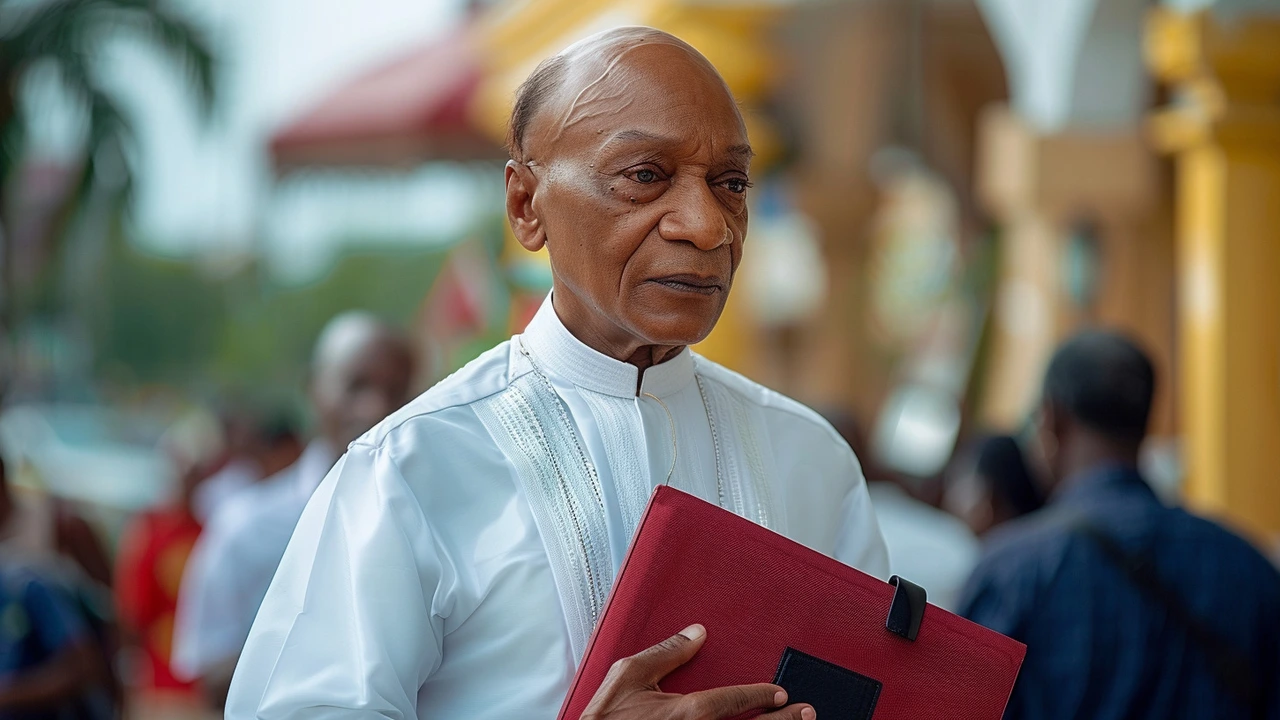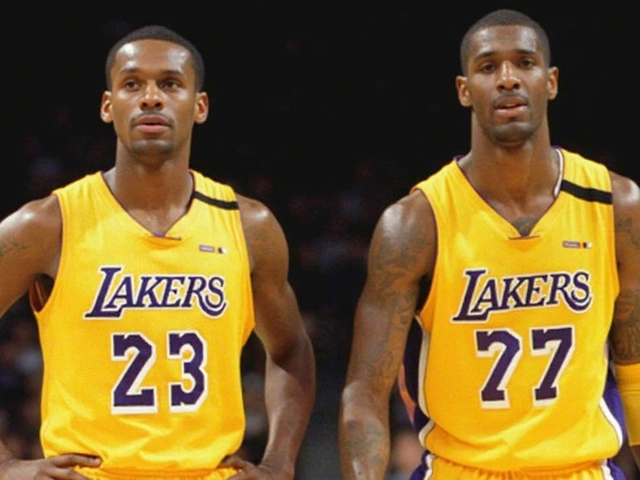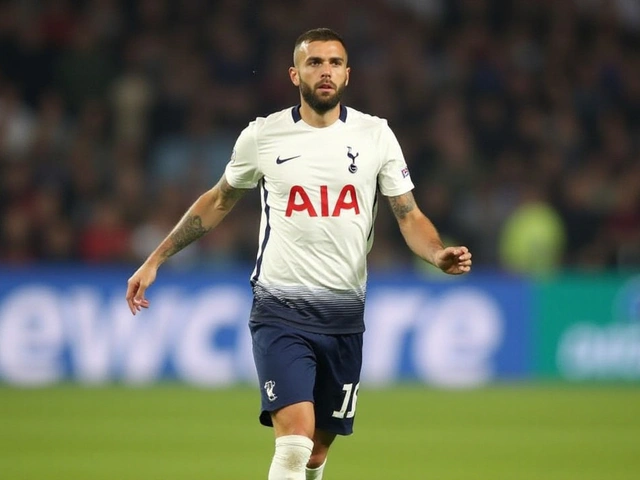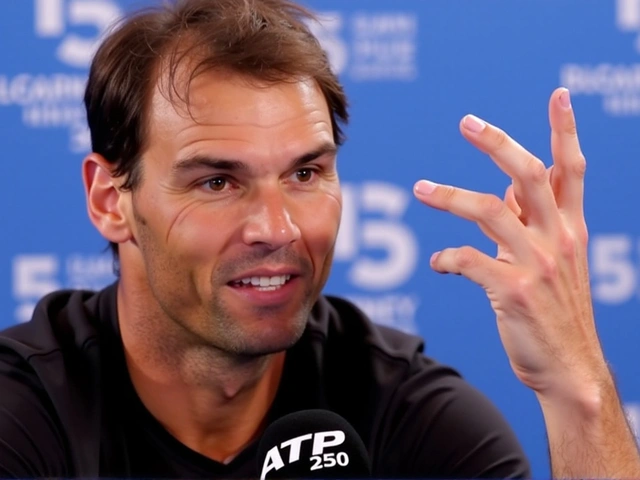EFCC Arraigns Former CBN Governor Emefiele on Illegal Printing of Naira Notes Charges
The Economic and Financial Crimes Commission (EFCC) has brought former Central Bank of Nigeria (CBN) governor Godwin Emefiele to face charges related to the illegal printing of naira notes and unauthorized fund withdrawals. Emefiele, now a prominent figure embroiled in multiple allegations of corruption, stood before the Federal Capital Territory (FCT) High Court in Abuja.
Godwin Emefiele, who served as the CBN governor, is accused of printing 684 million naira notes at an exorbitant cost of N18.96 billion without receiving the necessary approval from then-president Muhammadu Buhari. This controversial act has put him at the center of a storm in the nation's financial sector, raising questions about the integrity of the operations that took place under his administration.
Charges and Allegations
The arraignment catalogue does not stop there. Emefiele is also charged with illegally approving the withdrawal of approximately N124.8 billion from the consolidated revenue fund. Such substantial amounts marked to be released without due process is a dire allegation that further complicates his defense. In court, Emefiele vehemently pleaded not guilty to these charges, a position that has led to a protracted legal battle.
Representing Emefiele, the defense lawyer has been forthcoming, urging the court to grant bail to the defendant pending the resolution of the case. The lawyer highlighted Emefiele's previous public service record and argued that he poses no flight risk. Proponents of this measure argue that it is essential to ensure that Emefiele can adequately prepare his defense.
A Tumultuous Year
This arraignment is the latest chapter in what has been an exceedingly challenging year for the former CBN governor. After being removed from his position by President Bola Tinubu last June, Emefiele faced not just public scrutiny but a sequence of legal challenges that appears unending. Following his ousting, the State Security Service (SSS) detained him for several months, an incarceration that put the spotlight back on his term in office. Once transferred to the custody of the EFCC, these charges began to crystalize, casting shadows on his legacy.
The public response to these allegations has been mixed, with a number of stakeholders in the financial sector expressing astonishment at the depth and breadth of the accusations. Some argue that if proven, these charges signify an alarming breach of trust in one of Nigeria's most crucial institutions.
Legal Proceedings and Counsel's Standpoints
The legal proceedings have thus far been closely monitored, with the prosecution laying out what it considers substantial evidence against Emefiele. The EFCC is keen on demonstrating that there was a deliberate flouting of due process, stressing the enormity of the financial irregularities that allegedly took place under his watch.
Emefiele's defense team, however, has been equally robust. They contend that these charges are not only disproportionate but also devoid of the necessary context. They posit that the decisions in question were undertaken in accordance with the demands and pressures of his office, and with regard to the betterment of the national economy.
Public and Financial Sector Reactions
Nationwide, reactions to Emefiele's arraignment have been on a spectrum ranging from outright support and calls for his vindication to sharp criticism and demands for his conviction. The situation has garnered attention from several international observers who are keen to see the outcome of such a high-profile case in Nigeria's judicial system.
Within the financial community, there is a palpable sense of unease. Questions about the future stability of the CBN and who might step in to stabilize the situation loom large. Some experts suggest this may be an opportune moment for sweeping reforms, aimed at increasing transparency and accountability within the bank.
Political Undertones
Many political analysts speculate that Emefiele's charges and subsequent legal entanglements may have deeper political implications. Some suggest that his removal and subsequent legal actions are part of a broader political strategy by the new administration to root out elements from the previous regime. Such political undercurrents make the case even more complex and multifaceted.
Nigeria, now watching this proceedings closely, faces a critical juncture where the outcome could set precedents for how financial misdeeds are handled. It may also influence intergovernmental trust and public confidence in the integrity of national institutions going forward.
The Road Ahead
As Emefiele awaits the next stages of his trial, much is at stake—not just for him but for the future of the CBN and Nigeria’s financial sector. The court’s decisions, public reactions, and international observations will play pivotal roles in shaping the outcome. The proceedings promise to be a revealing journey through the intricacies of Nigeria’s financial management and the safeguards—or lack thereof—that are in place.
This case underscores the importance of stringent oversight and accountability within public office, and the ripple effects of high-profile financial misconduct charges serve as a cautionary tale. Whether Emefiele is found guilty or not, the repercussions of this case are likely to be felt long into the future.






Write a comment